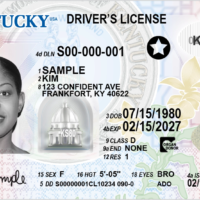Kentucky’s legislature acted unconstitutionally in 2022 by prohibiting Gov. Andy Beshear from spending public funds to challenge its actions, the state Court of Appeals ruled Friday in a unanimous decision.
The appeals judges upheld an earlier ruling by Franklin Circuit Judge Thomas Wingate that had struck down the legislature’s attempt to block the governor from taking it to court.
Defending the law, Attorney General Daniel Cameron had argued that the General Assembly has the “plenary power” to make public policy by restricting executive spending without violating the constitutional separation of powers.
The appeals court disagreed.
Kentucky’s Constitution commands the governor to “take care that the laws be faithfully executed,” the ruling says. The governor has a duty to challenge laws he deems unconstitutional and the “comprehensive authority” to decide how funds appropriated to his office are spent, says the ruling written by Judge Sara Walter Combs. Judges J. Christopher McNeil and Allison Jones concurred.
The law in question, House Bill 248, “violates the doctrine of separation of powers by attempting to give the General Assembly excessive power to impede the Governor in performing his constitutionally mandated duties,” the ruling says.
Beshear, a Democrat, vetoed the measure, along with House Bill 388, which shifted some power from his office to Republican Treasurer Allison Ball’s office. The Republican legislature overrode the vetoes. Beshear then challenged the measures in court.
The appeals court did not rule on the constitutionality of the law which shifted some authority over state contracts from the finance secretary to the treasurer, saying subsequent actions by the legislature had rendered the challenge moot.
In 2023, the legislature passed House Bill 329 aimed at remedying the“constitutional defects” in the earlier law identified by the lower court. Beshear argues the new law is essentially the same as the one that the lower court struck down. But the appeals court said the new law is significantly different. The judges vacated the circuit court ruling and dismissed that portion of the appeal.
Cameron’s office did not say whether it will appeal the unfavorable ruling on the legislature’s power to curtail the governor’s spending on lawsuits against the legislature. The AG’s office issued this statement: “The Court of Appeals agreed with Attorney General Cameron in substantial part. We are carefully evaluating next steps as to the part of the decision invalidating a law duly enacted by the General Assembly.”
House Speaker David Osborne, R-Prospect, said in a statement: “We are reviewing the court’s ruling and do not comment on pending litigation. However, the legislature is the only branch of government granted the constitutional authority to determine how taxpayer resources are spent. This House Majority has a record of being very intentional in how we approach this stewardship and we will continue to honor that commitment. Future budgets will take into consideration whether or not the conditions on an appropriation are met.”
This article is republished under a Creative Commons license from Kentucky Lantern, which is part of States Newsroom, a network of news bureaus supported by grants and a coalition of donors as a 501c(3) public charity. Kentucky Lantern maintains editorial independence. Contact Editor Jamie Lucke for questions: info@kentuckylantern.com. Follow Kentucky Lantern on Facebook and Twitter.






